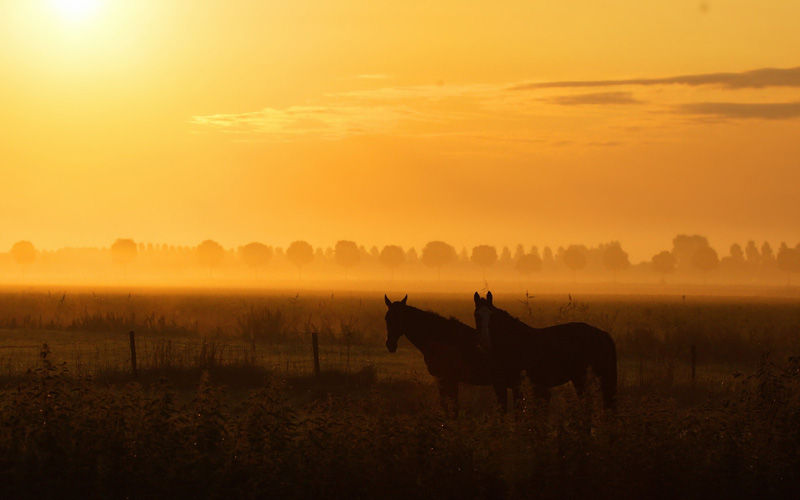How do we assess the events in our lives? Can we truly discern whether the things that happen to us are good or bad? Sometimes it’s hard to tell, as an old Chinese story demonstrates. The story says that there was once a poor old farmer who relied upon his steady and reliable horse to help in the tilling of his fields. The farmer awoke one morning to discover that his horse had found the gate of its enclosure unlatched in the night and had disappeared into the surrounding hills. The farmer’s neighbors came to offer their condolences. Surely he would starve, they told the farmer, without the help of his horse. But the farmer simply replied, “Is it bad? Is it good? Who knows?”
The farmer’s only son set off into the hills to find the lost horse and returned several days later leading a whole herd of wild horses from the hills as well as their lost horse. Now the farmer’s corral was full. This was a development that would surely enrich the old farmer, the neighbors said. But the farmer simply replied, “Is it bad? Is it good? Who knows?”
The farmer’s son worked hard to tame the wild horses from the hills, but one morning a particularly spirited horse threw the son off its back. In his fall, the farmer’s son broke his leg badly and needed to remain in bed recuperating. The neighbors came to the old farmer’s house to commiserate. Now the farmer had no one to help him with the work of the farm, they said. This was disastrous. But the farmer simply replied, “Is it bad? Is it good? Who knows?”
A few days later the old farmer watched as columns of marching soldiers approached his house. The war lord leading this army was conscripting all able-bodied young men to march with him to distant battle grounds. Seeing that the farmer’s only son was unable to walk due to a broken leg, the soldiers marched on without him. Hearing the astonishing news, the farmer’s neighbors ran to his home to congratulate him on his good fortune. But the farmer simply replied, “Is it bad? Is it good? Who knows?”
How do you assess the status of your life? Is it bad? Is it good? The truth is, as the Chinese parable makes clear, that our initial assessment of events may be mistaken. Perhaps the dream job we landed, or the move, or the new relationship, or the prize possession we acquired will prove less satisfying than we dreamed. And equally possible, the losses, the illnesses, the hardships and heartaches we think we are unable to survive may become the pathways to growth, or fulfillment, or an ultimate joy we never envisioned.
Many, many years ago, Paul of Tarsus made the provocative pronouncement that all things work together for good for those who love God. With that statement Paul moves the analysis of “bad” or “good” from the particular events in question to the ultimate trajectory of history. Without denying the brokenness of lives and the hardships in our world, he encourages us to see that the purposes of God will prevail, no matter what. And how would we describe the purposes of God? They’re good, they’re all good!

